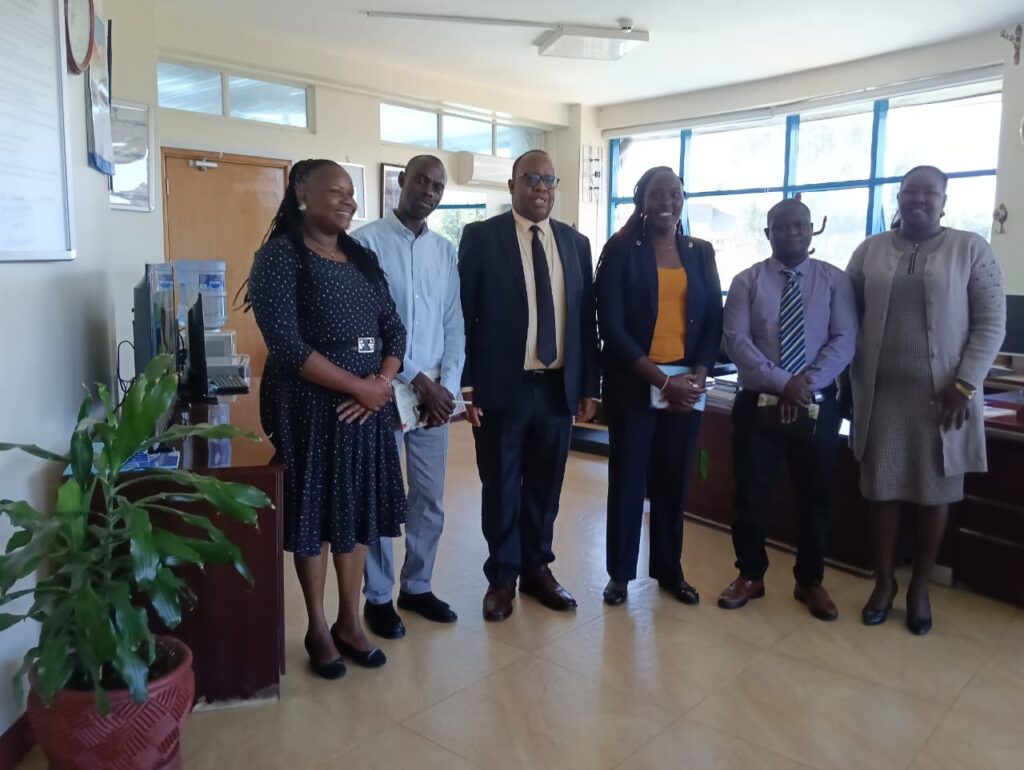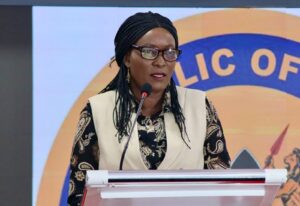Uasin Gishu CSO Network and MTRH CEO Meet to Address SHA Concerns and Improve Community Healthcare Access

In a concerted effort to address pressing community concerns over healthcare accessibility, the Uasin Gishu Civil Society Organization (CSO) held a pivotal meeting today with Moi Teaching and Referral Hospital (MTRH) CEO, Dr. Philip Kirwa. The gathering, which aimed to enhance the community’s understanding and access to the newly launched Social Health Authority (SHA) program, allowed both parties to explore collaborative solutions to challenges facing the program and the community it seeks to serve.
The CSO meeting with MTRH highlighted key issues affecting healthcare service delivery under SHA CSO representatives raised concerns about the difficulties community members face in registering for SHAH, with many lacking essential identification documents, especially national ID cards. Since ID cards are a fundamental requirement for SHA registration, this limitation has prevented some residents from enrolling, leading to barriers in accessing healthcare services. To mitigate this issue, the CSO has committed to an awareness campaign aimed at educating the public about the necessity of acquiring identification to facilitate SHAH registration and access the program’s benefits.
“Today’s discussion underscored the urgent need for increased community engagement to help residents fully understand how SHA can support them in achieving better health outcomes,” said Benadine Kipruto a CSO representative. “Our role as civil society is to bridge the gap, making sure that everyone in Uasin Gishu County understands the value of SHA and is equipped to participate in it.” she added.
The CSO further advocated for SHA’s board to consider alternative forms of identification for registration, such as passports, birth certificates, and biometric data, in order to ensure that the program is accessible to the broadest section of society, including non-Kenyan residents.
The meeting also provided an opportunity for Dr. Kirwa to update the CSO on the current progress and challenges of SHAH’s implementation. According to Dr. Kirwa, the hospital has encountered some operational obstacles since SHA’s official rollout on October 1, including delays with identification verification processes and One-Time Password (OTP) systems required for patient enrollment. However, he assured attendees that significant improvements have been made to streamline these processes and enhance the patient experience.
“SHA represents one of the greatest gifts from our government towards universal healthcare coverage,” Dr. Kirwa explained. “We are committed to ensuring that every resident is aware of its benefits and has access to healthcare without unnecessary delays. Our teams have been working tirelessly to resolve initial technical setbacks, and today, we are seeing much smoother operations in areas such as patient identification and verification.” Dr. Kirwa emphasized that despite the initial difficulties, the ICT-based SHAH system is now functioning more efficiently, allowing most patients to complete their registration and receive services promptly.
SHA’s ICT-driven platform, as Dr. Kirwa noted, offers unique advantages for enrolled patients. Unlike the National Health Insurance Fund (NHIF), which often requires a waiting period before coverage becomes active, SHA’s system allows patients immediate access to medical care. This streamlined approach has been particularly beneficial for patients requiring critical services like dialysis and chemotherapy, enabling them to begin treatment almost instantly after registration.
In addition to resolving technical issues, Dr. Kirwa highlighted SHA’s preventive care component, underscoring the hospital’s focus on reducing the overall burden of illness through preventive healthcare. “We’re not only here to treat illnesses but to foster a culture of prevention,” he said. “SHA aims to reduce health risks in the community by promoting healthy lifestyles, regular screenings, and risk mitigation. Our goal is to empower the community to make proactive choices that protect their well-being.”
The CSO also called upon county hospitals and other stakeholders to bolster their efforts in supporting MTRH by alleviating the patient load on the referral hospital. They urged local leaders and politicians to avoid politicizing SHA’s implementation, emphasizing that the focus should remain on providing equitable healthcare access and not on political gains. The CSO stressed the importance of clear and consistent communication from SHAH and its partners to foster community trust and encourage more residents to enroll.
During the meeting, the CSO commended MTRH’s outreach initiatives, noting the hospital’s active role in public education. Dr. Kirwa revealed that MTRH’s teams have been deployed to various counties, including Uasin Gishu, Kakamega, and Elgeyo Marakwet, to raise awareness about SHA registration and the healthcare services available through the program. These community sensitization drives aim to provide residents with a deeper understanding of SHAH, its enrollment requirements, and the health benefits it offers.
As the program continues to gain traction, both MTRH and the CSO are optimistic about SHA’s potential to transform healthcare delivery across the region. The CSO expressed gratitude for the opportunity to collaborate with MTRH, describing the partnership as an essential step in bridging the gap between healthcare providers and the community. They committed to maintaining strong ties with MTRH and supporting SHA’s growth by actively engaging residents, advocating for inclusive policies, and promoting health literacy.
Dr. Kirwa echoed this sentiment, stating, “Our ultimate goal is to ensure that SHA reaches every corner of our community, providing families with reliable, affordable, and timely medical care. Through continuous dialogue, improvement, and community partnership, we can create a healthcare environment where no one is left behind.”
The meeting concluded with a shared commitment from MTRH and the CSO to prioritize community health and strengthen SHA’s role as a cornerstone of universal health coverage. With ongoing engagement and collective action, both parties hope to establish a model of healthcare that prioritizes accessibility, equity, and preventive care, benefiting the entire Uasin Gishu County community and beyond.





